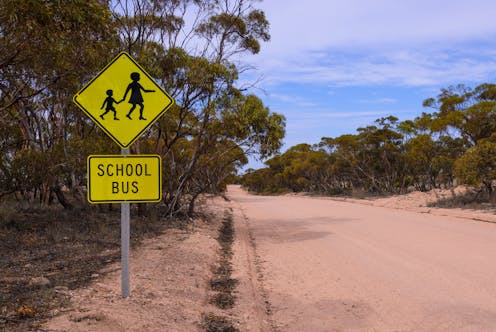Don't expect schools to do all the heavy lifting to close the education divide between the big cities and the rest of Australia
- Written by The Conversation

Students in regional, rural and remote Australia have been behind their urban counterparts on almost every recognised measure of successful schooling for decades. This is unacceptable and has to change.
To achieve this change, it will be vital to draw on and build the neglected capacities of parents, families and communities to improve student achievements at school. The National School Reform Agreement between the Commonwealth, states and territories aims to lift student outcomes across Australia. But the current five-year agreement, which runs to the end of 2023, almost entirely ignores the lives of students outside schools.
The world outside the school fence is where students spend most of their time. What’s happening and not happening there directly impacts their motivation and ability to learn. Education policies and practices have to embrace this reality.







